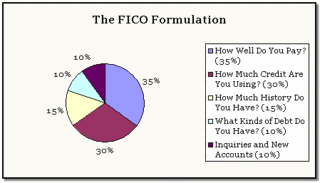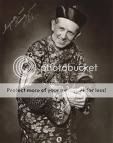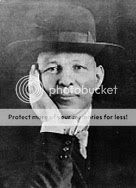Page 1 of 1
Impact on magic during the Renaisssance period
Posted: July 2nd, 2008, 5:53 am
by swamy
Did the Renaissance period(14th and 15th century A.D.) had an impact on the magic to be recognised as a form of entertainment ?
Re: Impact on magic during the Renaisssance period
Posted: July 2nd, 2008, 7:28 am
by Bob Farmer
Yes. Footnotes to follow.
Re: Impact on magic during the Renaisssance period
Posted: July 2nd, 2008, 9:18 am
by swamy
Is there any reference published in any book ?
Re: Impact on magic during the Renaisssance period
Posted: July 2nd, 2008, 9:52 am
by Jonathan Townsend
One might expect the recovery of so much literature and the ideas contained would have some fairly obvious effect on the resources available to those who use technology to amuse - as we do.
Seems like asking if the industrial revolution had an effect upon the consumer market for magic related goods IMHO.
Re: Impact on magic during the Renaisssance period
Posted: July 2nd, 2008, 10:36 am
by swamy
Interesting comparision.
I have tried to search through internet but nothing specific I could get.
Re: Impact on magic during the Renaisssance period
Posted: July 2nd, 2008, 12:35 pm
by Jacky Kahan
Re: Impact on magic during the Renaisssance period
Posted: July 10th, 2008, 11:49 pm
by Bill Palmer
Actually, the Renaissance spans a much larger time period than that. Most historians give it a span of late 14th century (in Italy) through the 16th century and into the 17th century (in England).
In Engand, the 14th century would generally be considered late Medieval and part of the 15th would be considered early Renaissance.
Historical periods generally are not switched on and off. People don't just get up in the morning and say, "My gosh! It's the 15th century! I need to get off my duff or I'll miss the beginning of the Renaissance!" (or the end, if you were in Italy.)
BTW, this may be where you will need to actually visit a library. Do some research among books. Find a few books on history and read them, so you have more knowledge about a period than just when the battles happened.
Re: Impact on magic during the Renaisssance period
Posted: July 11th, 2008, 7:49 am
by swamy
The amount of FREEDOM the individual got during the Renaissance period appears to be main source for magic to be perceived as entertainment.
Re: Impact on magic during the Renaisssance period
Posted: December 8th, 2008, 3:45 pm
by Ray Haddad
Have you tried Scot's Discoverie of Witchcraft?
http://www.conjuror.com/archives/discov ... verie.html
There are some real insights there. Also, try The Golden Bough for 19th and 20th century perspectives on all kinds of magic influences in religion and life as we know it. There are lots of references to the Rennaissance period.
http://www.bartleby.com/196/
Have fun in your research.
Re: Impact on magic during the Renaisssance period
Posted: December 8th, 2008, 4:07 pm
by Jonathan Townsend
Bob Farmer wrote:Yes. Footnotes to follow.
Waiting for those footnotes
Re: Impact on magic during the Renaisssance period
Posted: December 15th, 2008, 4:28 am
by Greg Edmonds
You might enjoy Philip Butterworth's Magic On The Early English Stage, published in 2006.
Here's a review I wrote for Amazon.com in early 2007:
Coming, as it does, from an academic author and the Cambride University Press, there's no surprise in the scholarly, and often pedantic, character of the prose found in this publication. It draws heavily from classical conjuring-related texts such as Scot's Discoverie of Witchraft, and to a lesser degree, Ady's A Candle in the Dark. The extended quotations in the text are of a font size that put a strain on my aging eyes as well, but they'll likely prove no problem for most readers.
Author Butterworth excels in bringing to light numerous passages from contemporary medieval and renaissance financial documents, listing various jugglers (conjurers), expressing their play dates, the contents of their programs and what they were paid. His listing of connections to the fraudulent use of trickery by the church, among other institutions and individuals, is also quite interesting, as are the conjuring-related "feats of activity." The theatrical "special effects" noted are very interesting as well. As noted, a fair amount of the content is found in other works, including the profiles of several personalities the author sketches. Butterworth credits Edwin Dawes (who wrote the Foreword), perhaps the world's leading current exponent of magic history, for his assistance. Dawes' hand seems apparent in some of the profiles provided, which is a good thing. This text is, however, unique in its combination of information from the periods discussed. I believe it's safe to say there exists no other work to date capable of matching Magic on the Early English Stage's comprehensive content. All of the information is thoroughly credited and annotated. Indeed, the Appendix and Notes sections comprise nearly a third of the book. The book's price is more in line with what one would expect to pay for a college text than for a smallish hardbound tome for the general reader. As a student of magic history, though, I very much enjoyed it and believe those with similar interests will as well.
The current list price is $101.00 and up on Amazon.
If you're asking about the impact of ceremonial (intellectual) magic, ritual magic or witchcraft, of course, there are literally hundreds of publications addressing these topics and their many subcategories.
Greg
Re: Impact on magic during the Renaisssance period
Posted: December 15th, 2008, 11:01 am
by opie
You might want to read some of these articles/books/etc., regarding Renaissance magic:
http://www.scribd.com/search?query=RENA ... &x=20&y=13
There are a lot of references...
opie
Re: Impact on magic during the Renaisssance period
Posted: December 15th, 2008, 12:20 pm
by Jonathan Townsend
Was the notion of compound interest propagated during the Renaissance?
How about the notion of a limited liability corporation as a legal entity (person) ?
Re: Impact on magic during the Renaisssance period
Posted: December 15th, 2008, 3:40 pm
by Greg Edmonds
In my above reference to Butterworth's Magic on the Early English Stage, I recognize that I was reticent in not mentioning the fact that the majority of the juggling "magic" performances mentioned were not, in fact, performed on a stage at all, but were conducted in the streets, at fairs or other open areas.
I don't know if there were such things as Limited Liability Companies at the time (though I tend to doubt they then existed). Depending upon where the magician/juggler performed, if he was too convincing, he might have been threatened with burning at the stake, his insurance, in this instance, was to reveal the secrets of his "tricks" to the powers that were. Faced with death, how many of us would refuse to reveal the method?
Greg
Re: Impact on magic during the Renaisssance period
Posted: December 15th, 2008, 9:08 pm
by Ray T. Stott
Re: Impact on magic during the Renaisssance period
Posted: December 16th, 2008, 1:27 am
by swamy
There are aspects to an effect:
1. The relation between what should have happened logically and what actually happens. The audience gets amused with the Illogical conclusion.
2. The unexplained or the secret behind certain facts or experiences.
It is the second point that was in focus during the Renaisssance period so as to enlighten the society. Later these 2 aspects were used to entertain the audience.
Re: Impact on magic during the Renaisssance period
Posted: December 16th, 2008, 10:10 am
by Jonathan Townsend
swamy, what do you mean by enlighten?
by 'logically' do you mean something like: if things were as they appear - what would happen if I were to perform the actions of the performer?
puzzled by item 2 as nature has no secrets and facts are social agreements about experience.
Looking for more,
Jon
PS the basic linquistic issues are discussed in that beginner's text "The Structure of Magic Volume One" by Bandler under the section about well formed statements and using the meta-model to get the unspoken into plain language - so Asif tells me presuming folks want to do other.
Re: Impact on magic during the Renaisssance period
Posted: December 16th, 2008, 10:24 am
by Michael Kamen
Perhaps Swami would accept the word "incongruous" rather than "illogical." Then we might describe the relation between what would be expected or congruous with the laws of physics vs. incongruous. The same humor principal should apply.
Re: Impact on magic during the Renaisssance period
Posted: December 16th, 2008, 6:27 pm
by David Alexander
"...facts are social agreements about experience."
So all the people who didn't socially agree about gravity floated away a long time ago?
Or the folks who don't socially agree that the Earth is round fell off one of the edges?
Re: Impact on magic during the Renaisssance period
Posted: December 16th, 2008, 7:08 pm
by Jonathan Townsend
David Alexander wrote:"...all the people who didn't socially agree about gravity ...
To extract meaning from your text requires some understanding of what you mean by gravity and floating - which are ... you guessed it... social agreements about how sounds and text and confirmed observations correlate.
For example we likely agree that "grass is green" based upon experience though something about "the sun will come up in a few hours" misses some rather ominous presuppositions which bring up the very useful notions behind how we go about shifting from being surprised by things to expecting things - our strange friend the idea of confidence who encourages us to act "as if" and find out what happens next.
The map is not the terrain. How we make temporary maps of the terrain with some odd features is part of conjuring. :)
Re: Impact on magic during the Renaisssance period
Posted: December 17th, 2008, 10:28 am
by swamy
What is meant by "Enlighten":
Today audience knows that secrets behind the effects exists and they enjoy the effects. In earliear days the existence of secret itself was not known and the ignorance prevailed. It was during the Renaissance period, efforts were being made to remove ignorance.
Knowing the existence of secrets is one aspect and knowing how the effect is performed is another aspect.
Re: Impact on magic during the Renaisssance period
Posted: December 17th, 2008, 10:45 am
by Jonathan Townsend
thanks swamy, ignorance prevails.
Re: Impact on magic during the Renaisssance period
Posted: January 28th, 2009, 9:51 pm
by magicam
swamy wrote:Did the Renaissance period(14th and 15th century A.D.) had an impact on the magic to be recognised as a form of entertainment ?
Hi swamy,
I'm not sure I really understand your question. Are you asking if society's views on magic changed during this era? If so, which society/culture interests you?
Or are you assuming that during this period magic came to be regarded as entertainment and wondering what happened during this period to cause such a change in the public perception?
 was not in their minds, they did, in fact, practice the use of it on cacao beans, a valuable and portable coin of the realm. Really!
was not in their minds, they did, in fact, practice the use of it on cacao beans, a valuable and portable coin of the realm. Really!


